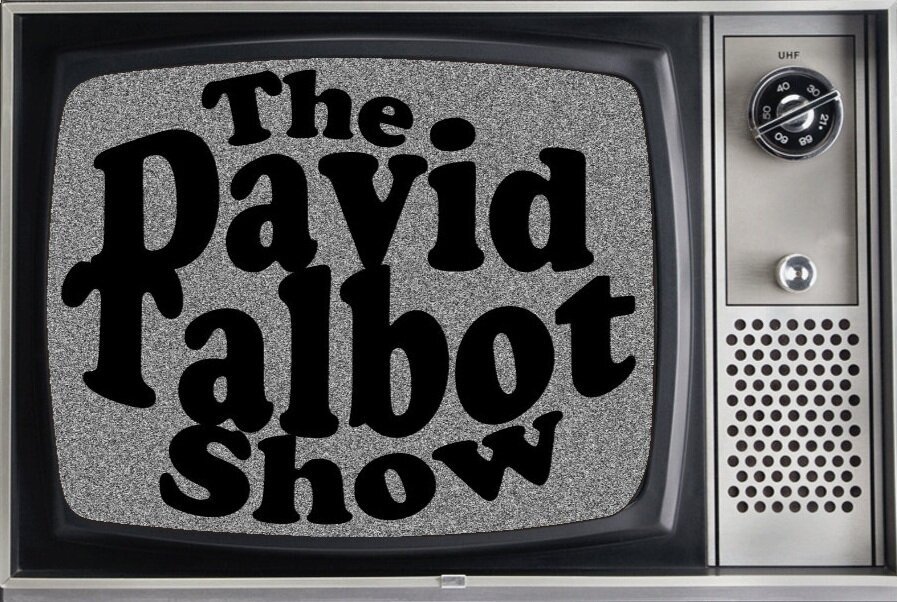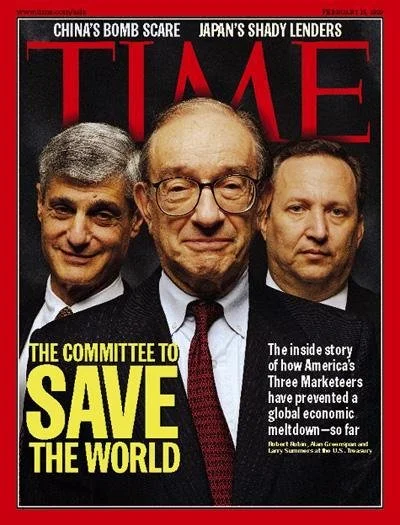Putin on the Ritz
Putin on the Ritz... The Western media is falling all over themselves to demonize Putin -- which they should, since he showed his true fangs by savagely invading Ukraine. On the news networks, it's D-Day every day, as excited war correspondents and even more excited armchair generals jostle for airtime. They LIVE for this shit -- it makes (or breaks) careers.
But -- no surprise here -- it's the war-fevered liberal elite newspapers that truly drive me mad. Take the Damien Cave "analysis" piece in today's New York Times. (Full disclosure: Cave was once upon a time an earnest young reporter for my Salon -- has ANY of the journalists who started out there before going on to illustrious careers in the mainstream media carried with them the radical seeds of Salon? Maybe Michelle Goldberg, a little.) Cave bemoans the decline of the neoliberal world order as a bulwark against creeping authoritarianism around the globe, quoting a who's-who parade of neoliberal and neoconservative militarists like Robert Kagan. Cave does mention that the neocon wars in Iraq and Afghanistan were kind of, um, debacles. And their new world order brought with it grotesque levels of wealth disparity. But that doesn't stop Cave from loading his article with the "wisdom" of these deep thinkers.
Cave cites President Franklin Roosevelt as one of the visionary leaders who wanted an aggressive international strategy after World War II, lumping FDR with Cold Warrior Harry Truman. This is bad history -- something the Times commits on a regular basis in its rush to prop up U.S. exceptionalism. Before his untimely death in 1945, FDR (and his top economic advisor Harry Dexter White) were trying to build a new world order that would INCLUDE the Soviet Union (even under Stalin), as a way to prevent future catastrophic wars.
Instead, after FDR, Washington visionaries were blacklisted and driven out of power (or to early graves like White) by anti-Red crusaders like the Dulles brothers, Richard Nixon and Joe McCarthy. (You can read all about this in my book, "The Devil's Chessboard," which was a NYT bestseller, despite being banned by the Times.)
Fast-forward to the 1990s, when the Russian economy again lay in ruins. Who helped revive it with their neoliberal "shock therapy" -- which paved the way for Putin's strongman oligarchy? None other than President Clinton's financial brain trust -- Robert Rubin, Larry Summers and Jeffrey Sachs.
The Putin regime is in some deep way a creation of the Wall Street elite. But you won't read this in the New York Times. To go beyond the hysteria of the moment, you need to seek out other news sources. The best article I've read about the Wall Street roots of the Putin dictatorship was in Air Mail, of all places, the slick online magazine co-created by Graydon Carter of Vanity Fair fame and Alessandra Stanley, who once ran the NYT's Moscow bureau. The Putin analysis by Stanley is an eye-opener. Here are the key grafs:
Before we pour any more vodka down the drain—and, by the way, Stoli is not Russian; it’s made in Latvia—this may be a good time for Americans to take a look in the mirror. Putin didn’t create his oligarchy on his own. The wealth that this circle of men was awarded (control of assets such as oil, gas, and aluminum after the collapse of the Soviet Union) was partly made possible by the well-meaning arrogance of economists such as Jeffrey Sachs and Larry Summers, as well as Robert Rubin, who was Treasury secretary under Bill Clinton.
In the Clinton administration, they were in an Ivy League clown car of advisers who prodded Boris Yeltsin to apply “shock therapy” to the post-Soviet economy and turbocharge it into a free-market system.
I was in Moscow for The New York Times back then, and I had a close look at the bold, blinkered confidence of American experts, both from Washington and from the private sector. They seemed to be enacting their own version of A Connecticut Yankee in King Arthur’s Court.
Like Mark Twain’s engineer who time-traveled back to medieval England and used modern technology to bedazzle Camelot, those can-do technocrats and consultants seemed so sure that their mastery of markets would give them the upper hand. Using Wall Street know-how and neoliberal theories of deregulation, they were going to help the backward Russians build a Western-style economy.
Instead, smart, ruthless Russian buccaneers took advantage of weaknesses in the new system to plunder gas and other state assets and build vast fortunes. Meanwhile, the collapse of the managed economy impoverished millions of ordinary Russians in a full economic free fall known as katastroika. When I arrived in Moscow in 1994, newly pauperized army officers, nurses, and professors lined up on the sidewalks trying to sell military medals, teapots, boots, icons, and toys—anything they had—for cash.
Sachs, now at Columbia University, has moved onto bigger issues; notably, a plan to end extreme poverty worldwide by 2025 (ticktock). He still gets tetchy when people ask about Russia. He crossly told a biographer, Nina Munk, that he took a “ridiculous” amount of blame for Russia’s economic malfunction. He says there was nothing wrong with the policy, but notes that others, including Larry Summers, who was a high-level Treasury Department official under Rubin, were far more at fault than he.
An Ivy League clown car of advisers prodded Boris Yeltsin to apply “shock therapy” to the post-Soviet economy and turbocharge it into a free-market system.
It’s important to remember that Putin wasn’t elected; he was appointed acting president by Yeltsin a year after the ruble collapse of 1998, at a moment of deep disillusionment and fear. For years, even some of my most liberal Russian friends felt that democratic freedom was a fantasy, and that putting up with Putin was a small price to pay for economic stability.
Meanwhile, Putin reorganized the oligarchy he’d inherited in his own image, putting loyalists in the place of cocky troublemakers like Mikhail Khodorkovsky, who had grabbed hold of Yukos Oil under Yeltsin. Khodorkovsky thought he could speak his mind under Putin and was rewarded with nine years in prison. Other business tycoons and government officials in Putin’s inner circle got the message, fell in line, and were richly rewarded for it.
But let’s not forget that their overseas holdings, secret bank accounts, and tax havens would not have been as accessible without the unfettered, unregulated financial system that Wall Street, the White House, and Congress have stoked—and, as we’ve seen recently, sometimes used for personal financial gain—for decades.
At the moment, it’s tempting to paint Putin as a raving, isolated madman, though it wasn’t entirely crazy of him to look at Donald Trump’s lunacy and conclude the United States was no threat.
And belatedly pointing a finger at the Russian oligarchs who took the money and looked the other way may be unsatisfying; so much of their ill-gotten gains are by now too artfully hidden and out of reach. But it’s never too late to acknowledge the possibility that other Western miscalculations fed his aggression.
As they did with the Russian economy, American policymakers in both parties (including, by the way, Joe Biden, when he led the Foreign Relations Committee) pushed the pedal hard on NATO’s eastward expansion, without fully understanding how Russia would react. George W. Bush made it worse by insisting in 2008 that the North Atlantic military alliance could even absorb Ukraine and Georgia. The invasion of Ukraine may look like a folie à un, but as my friend Andrew Gould, a banker and longtime Russia-watcher, put it: “Putin kept warning the West that if something wasn’t done to restrain NATO expansion, he would do it himself. And now he has. ”
The world has to stand up to Putin and try to save Ukraine from war and destruction. It’s a shame Biden didn’t admit to Americans that they may have to endure some discomfort to do so. Then again, we fought two wars across almost 20 years in Afghanistan and Iraq, and yet no president called for sacrifices on the home front. Instead, like Graham Greene’s antihero in The Quiet American, our leaders keep pushing bromides that look great on paper, sound simple on television, and are doomed to fall apart on the ground.
America and Russia are back to a Cold War standoff, but it is the people of Ukraine who are paying the unthinkable cost.

